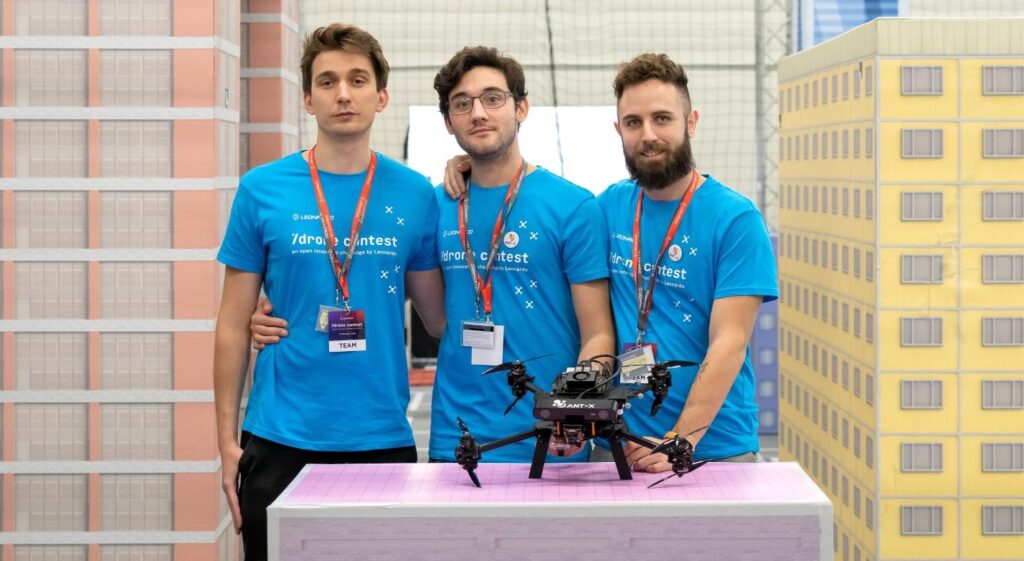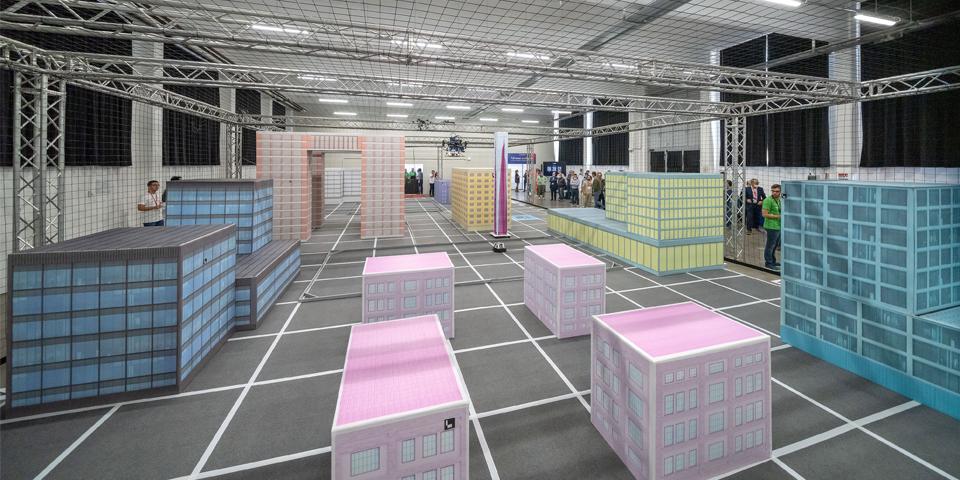Three out of three for the Politecnico: the university team, comprising the Alumni Gabriele Roggi, Salvatore Meraglia, Mattia Giurato, and professors Marco Lovera and Matteo Matteucci, has triumphed again at the third edition of the “Leonardo Drone Contest, An Open Innovation Challenge”, a competition organised by Leonardo. The team from the Politecnico competed with autonomous navigation, trajectory planning, collision avoidance and landing systems for the drone ROG-3, which was developed together with the spin off ANT-X.

The competition, the third and last edition of this cycle, involved teams from six Italian universities which competed over three rounds. The six drones flew completely autonomously in a competition area featuring buildings, take-off and landing pads and the presence of known and unknown objects.
Notably, the third edition added a new element of complexity, introducing “skyscrapers” to the competition area in positions that were not known to the teams, with the aim of testing the “collision detection and avoidance” capabilities of the drones, which were also tasked with pursuing an intruder and inspecting the walls of the buildings.

The first cycle of the Leonardo Drone Contest has now come to an end: next year a new three-year programme will begin with the addition of other universities. The same formula will be used but the bar will be raised further yet and the challenge will become even more difficult with an interesting interaction between flying drones and land-based robots.
In future, drones like these may reach industrial production, with applications in many fields, as Franco Ongaro, Alumnus e Chief Technology and Innovation Officer di Leonardo, remarked onRai:
“Even today, smart assistants are used in operations carried out by surgeons, in transport, security, and the cyber security of smart cities, so they have the ability to monitor traffic, utilities, electricity and intelligently manage a city on the basis of data.”